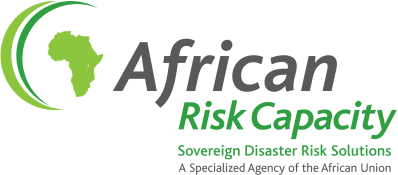Vision
The African Risk Capacity (ARC) was established as a Specialized Agency of the African Union (AU) to help Member States improve their capacities to better plan, prepare and respond to extreme weather events and natural disasters, therefore protecting the food security of their vulnerable populations.
Mission
ARC's mission is to use modern finance mechanisms such as risk pooling and risk transfer to create pan-African climate response systems that enable African countries to meet the needs of people harmed by natural disasters.
The objective of the ARC Agency is to assist AU Member States to reduce the risk of loss and damage caused by extreme weather events and natural disasters affecting Africa's populations by providing targeted responses to disasters in a more timely, cost-effective, objective and transparent manner. (See Articles 2 and 3 of the ARC Establishment Agreement).
As currently structured, the international system for responding to natural disasters is not as timely or equitable as it could be. Funding is secured on a largely ad hoc basis after disaster strikes and only then can relief be mobilized toward the people who need it most. In the meantime, lives are lost, assets are depleted, and development gains suffer major setbacks – forcing more people into chronic destitution and food insecurity in the world's least developed countries.
ARC is an African solution to one of the continent's most pressing challenges, transferring the burden of climate risk away from governments – and the farmers and pastoralists whom they protect – to the ARC that can handle that risk much better. This African-owned, AU-led financial entity will use Africa RiskView, an advanced satellite weather surveillance and software – developed by the UN World Food Programme (WFP) – to estimate and trigger readily available funds to African countries hit by severe weather events. Because such events do not happen in the same year in all parts of the continent, pan-African solidarity in the creation of a disaster risk pool like ARC is financially effective. Pooling risk across the continent could significantly reduce the cost to countries of emergency contingency funds, while decreasing reliance on external aid.
By merging the traditional approaches of disaster relief and quantification with the concepts of risk pooling and risk transfer, ARC will help create a pan-African disaster response system that meets the needs of those affected in a timelier and more efficient way and provides an important step forward in creating a sustainable African-led strategy for managing extreme climate risks.





